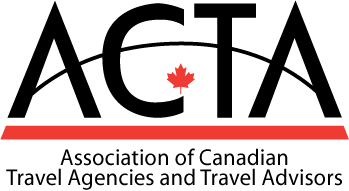Feds To Name Worst Airlines
Blacklock's Reporter

Transport Canada proposes to name and shame airlines with the worst service records. Regulations would compel carriers to publish now-confidential monthly statistics on late flights, overbooking and passenger complaints of lost or damaged luggage. Complaints are believed to number up to 50,000 a year, according to an Access To Information memo.
“Currently there is a lack of information and public reporting on the performance of air travel stakeholders,” staff wrote in a notice Amendments to Transportation Information Regulations. “This lack of information affects consumers’ ability to make informed decisions concerning air travel.”
The proposal would see all major commercial airlines submit figures on customer complaints and on-time performance data to an Electronic Collection Of Air Transportation Statistics program. The data should be public, wrote staff. The U.S. Department of Transportation runs a similar program.
“Currently, the lack of information collected and shared with the public regarding the performance of air travel stakeholders hinders transparency and reduces passengers’ ability to make informed air travel choices,” said the notice.
The Canadian Transportation Agency in an Access To Information memo obtained by Blacklock’s in 2014 acknowledged it received only a fraction of actual passenger complaints of poor service. “Would a database of level-of-service indicators similar to the Bureau of Transportation Statistics data set be useful for Canada? The answer is certainly yes,” said the memo Assessment Of Air Passenger Level Of Service Indicators In Canada.
“Consumers would benefit in that they would have access to information on the performance of carriers,” said the memo. “Carriers with strong performance would trumpet their showing while weak results would almost certainly spur efforts to improve. The data would also be a boon for policy makers and researchers working in the air sector. Last but not least, a level-of-service data set would be very useful for regulators to provide context for adjudicating complaints.”
Thousands Of Hidden Complaints
The Agency at the time received fewer than 1,000 complaints a year. “A range of between 20,000 and 50,000 annual air passenger complaints to Canadian airlines is not an unreasonable estimate,” wrote staff.
“The system is broken,” Dr. Gábor Lukács, a Halifax-based passenger rights advocate, said in an earlier interview. “The number of reported complaints are minuscule.” Public complaints to the Transportation Agency tripled after cabinet introduced Bill C-49 An Act To Amend The Canada Transportation Act mandating minimum compensation for flight delays, lost and damaged luggage and denial of boarding.
Compensation rules to take effect July 1 set minimum payments. However, the Air Passenger Protection Regulations exempt compensation in case of “airport operations issues” beyond an airline’s control. “Issues” were not defined. The Transportation Agency did not comment.
“The proposal takes into account some operational issues raised by air carriers such as their limited control of signage at airports, and potential difficulty for front-line staff in immediately determining the precise cause of a delay,” wrote the Agency.
Compensation will cost airlines an estimated $154 million a year. Under regulations, passengers that suffer lost or damaged luggage are entitled to $2,100 payable within 30 days of filing a complaint. Travelers denied boarding are entitled to minimum compensation of $900 payable within 48 hours. In cases of flight delays, airlines must:
- provide status updates every 30 minutes;
- after 30 minutes, ensure passengers have access to washrooms;
- after 2 hours, provide food, drink and “access to a means of communication”;
- after 3 hours, offer rebooking or a refund with $400 in compensation;
- after six hours’ delay, offer compensation of $700;
- after nine hours delay, offer $1,000 in compensation;
- if delayed overnight, additionally offer a free hotel room.
“Compensation must first be offered in cash or equivalent,” said the notice. Airlines may compensate customers for flight delays with vouchers or reward points, but only if clients agree.
“The proposal reflects consumer views that it is important to be offered compensation in the form of cash,” wrote staff. “It also provides the flexibility, supported by carriers and consumers, to offer other forms of compensation, e.g. travel vouchers, seat upgrades and points towards loyalty programs. Making cash the primary form of compensation with passenger discretion to accept other forms of greater, non-expiring compensation, ensures that carriers can tailor compensation to passenger needs provided passengers are aware of all options.”
The rules exempt compensation by small, regional airlines that carry fewer than a million passengers a year, compared to 45 million by Air Canada. Larger airlines are also exempt from paying for poor service caused by bad weather, labour disputes, bird strikes, medical emergencies or security alerts.
RELATED STORY:
